September 29, 2023 ✒ Andrew Kantor
NCPA not only applauded but loudly applauded a class-action lawsuit filed against CVS’s Caremark PBM “that aims to recoup for independent pharmacies millions of dollars in what the lawyers say are wrongful back-end penalties for Medicare Part D prescriptions, otherwise known as pharmacy direct and indirect remuneration fees.” The lawsuit claims that Caremark… …has been assessing pharmacy DIR fees in violation of federal antitrust laws and state laws governing contracts. The lawsuit also challenges Caremark’s agreements to arbitrate claims as being unfair and unenforceable. “It’s a mafia-style shakedown.” —NCPA CEO B. Douglas Hoey Yet another ‘exercise in a pill’ is in the works, this time out of the University of Florida. Called SLU-PP-332, it’s been tested on fat mice where it got them to lose weight “by convincing the body’s muscles that they are exercising more than they really are, boosting the animals’ metabolism.” “When you treat mice with the drug, you can see that their whole body metabolism turns to using fatty acids, which is very similar to what people use when they are fasting or exercising. And the animals start losing weight.” Not enough? How about this: “They also observed that the compound allowed normal-weight mice to run for 70% longer and 45% further*.” * farther Researchers in Finland say they’ve found a protein that might treat ALS (amyotrophic lateral sclerosis). It apparently “prolongs the lifespan of and alleviates disease symptoms in rats and mice.” The protein, called cerebral dopamine neurotrophic factor (CDNF), apparently relieves some of the stress in cells’ endoplasmic reticulum (reticuli?) — stress that, if it becomes chronic, can kill neurons and lead to ALS. That’s a gross oversimplification, which is why there’s a link to the full, detailed story. It’s not just Rite Aid: Other big pharmacy chains are closing stores as well, although not to head off bankruptcy. CVS said it’s closing 900 stores through 2024, and Walgreens will be closing 150 locations and cutting hours in 1,100 more. Their biggest issue: Differentiation. Let’s face it: unless one notices the nameplate on the door, little distinguishes shopping in one major drugstore from another. They sell much the same stuff in pretty much the same way. […] This has created a foothold for independent pharmacies that make being a drugstore their number one priority. When mice are on caffeine — i.e, they take it chronically — some interesting stuff happens to their sleep patterns. They go to sleep later (not surprising) and they wake up later (ditto), but “mice that consumed caffeine when awake slept more solidly, and their overall amount of non-REM and REM sleep was not changed.” The implication, say the UCLA researchers with the very twitchy mice, is that caffeine during the day might actually improve the quality of your sleep — but only if you can sleep in, as the mice did. If you can’t, “this may explain the perception that caffeine reduces sleep quality.” The White House announced a new, $100 million program designed to find treatments for antibiotic-resistant bacteria, which kill 35,000 Americans a year. It’ll be run out of ARPA-H (the Advanced Research Projects Agency for Health). RIP Burkey Belser, the man who designed the Drug Fact box on every OTC medication (and also the Nutrition Facts food label). He passed away Monday at age 76. Colorado has reported a death from the Black Plague. “Residents should not eradicate or kill prairie dogs on their property as this increases the risk of exposure to plague-infested fleas.”Pharma chains fear irrelevance, NCPA cackles with glee, caffeine for better sleep, and more
NCPA: “It’s payback time”
Weight loss, Jetsons-style
Possible ALS breakthrough
Chains fight for relevance
Caffeine shifts sleep

Short Takes
ARPA-H to tackle resistance
The designer nobody knew
Elsewhere: Rocky Mountain Low edition
September 28, 2023 ✒ Andrew Kantor
People on social media: Covid is fake! It’s a conspiracy by the children-eating lizard people! Vaccines kill! Eating kumquat will cure it! Do your research, sheeple! HHS: Yo, Facebook, Twitter, YouTube — can you crack down on this stuff? It’s hurting people. Social media: No. We believe in free speech until we don’t. HHS: Pretty please? That’s a lovely network you have there. It would be a shame if something were to … regulate it. U.S. District Judge in Louisiana: Sorry, misinformation is still free speech and you can’t ‘encourage’ them to censor it. Lay off! HHS: SCOTUS? Justice Alito: You don’t have to lay off until we consider it. Twitter: By the way, I identify as “X” now. The entire world: Oh shut up. Pfizer has re-started “the majority of production lines” at its tornado-damaged North Carolina plant. It’s not up to full strength yet, but that should happen by the end of the year. Make prescription opioids harder to get and people turn to street drugs like heroin. Then heroin gets expensive, so drug dealers start cutting it with fentanyl. Crack down on fentanyl? Here come nitazenes like isotonitazine that are even more potent, and that are made with precursors that aren’t yet regulated. As one organic chemist put it, “DEA is behind the curve.” (Note: First link is to a more human-friendly story; the second link is chemistry heavy.) Congrats to the Mercer College of Pharmacy, which was just named Chapter of the Year by NCPA! Hopefully it’s the start of a trend and not just a momentary blip, but the latest CDC data shows that Covid-19 hospitalizations have dropped for the first time since early July. Locally, there were 659 Georgians admitted to hospital for Covid treatment the week of September 9, but that dropped to 598 the next week. You know how evolution works: An organism’s DNA gets a mutation, and once in a while that mutation turns out to be beneficial and is passed down so the species can survive better. Here’s how the Covid treatment molnupiravir works: It introduces mutations. (They’re designed to destroy the virus’s ability to replicate.) You might see the problem. A new report in Nature that examined the genomes of 15 million Covid viruses found that yep, once molnupiravir was used in a region, the number of mutations there increased. And that means “there could be the potential for onward transmission of molnupiravir-mutated viruses.” Apparently no one at Merck has seen “Jurassic Park,” because the company’s response was that the drug only introduces mutations that “[impair] viral replication and reduces viral shedding, which would reduce the risk of transmission.” Also, the company said, it might be a coincidence that the number of mutations increased after its mutation-causing drug was introduced. (Seriously.) So what happens to healthcare if the government shuts down? The good folks at KFF have a breakdown.Fentanyl’s nastier cousin, Covid me could create variants, preparing for the shutdown, and more
Misinformation follies
It’s back!
Drug dealers keeping a step ahead
NCPA picks Mercer’s students
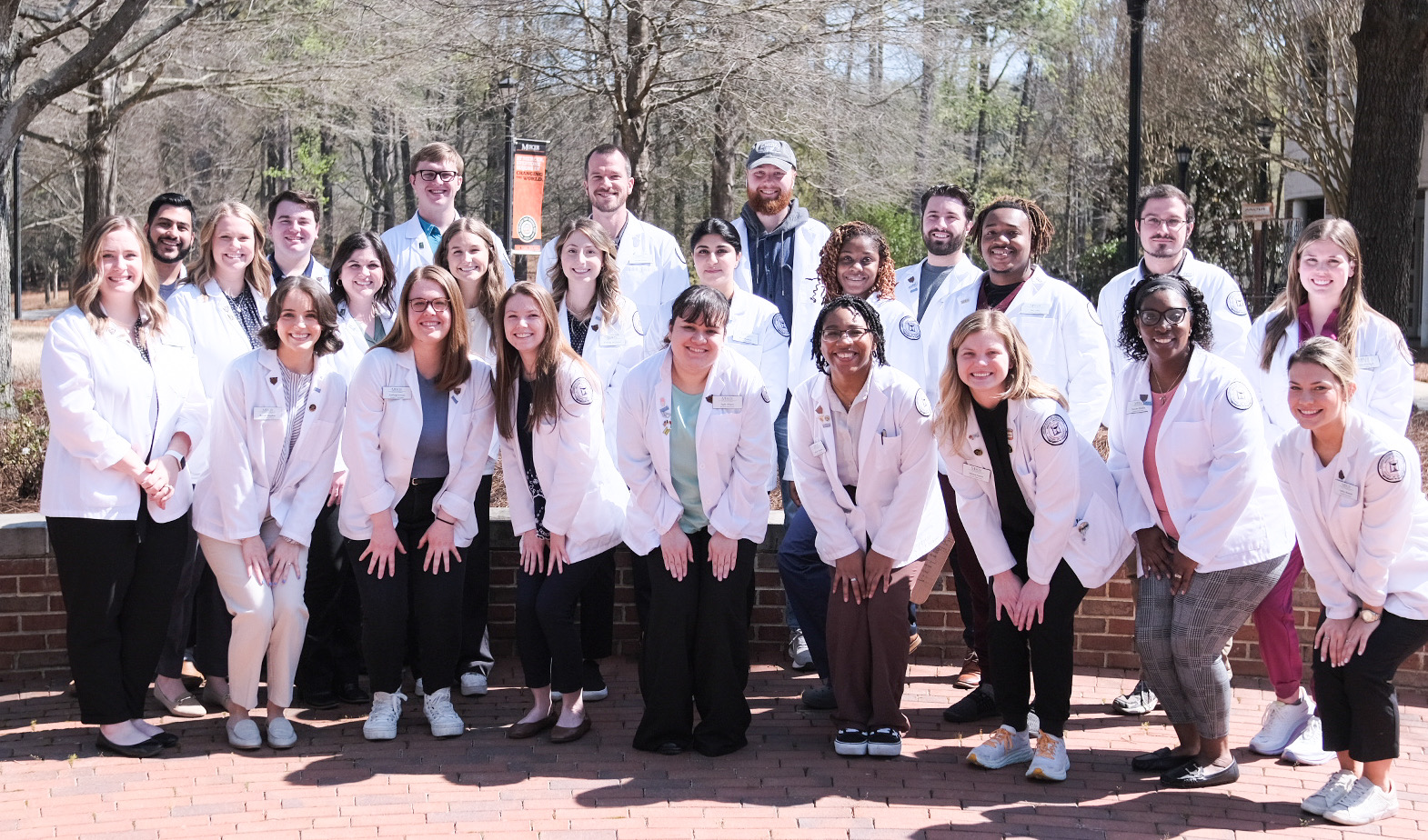
Covid hospitalizations drop
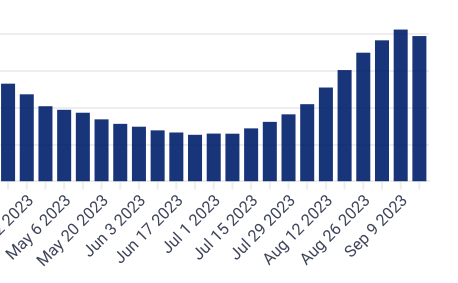
You tell me that’s it’s evolution…
What if?
September 27, 2023 ✒ Andrew Kantor
We wouldn’t ask if there wasn’t a good reason. And that reason is based on research published in the British Medical Journal that concluded many of the epidemiological conclusions reached in long-Covid studies “have distorted the risks” by classifying too many health issues as long Covid. A lot of them are just typical of someone who’s been really sick. Many after effects of Covid-19 infection include post-ICU syndrome — a constellation of health issues that are present when the patient is in intensive care and which persist after discharge home — and shortness of breath following pneumonia. Trouble is: these are common to many upper respiratory viruses. Or, as a similar article from Slate pointed out last month: If you get sick enough with any disease to the point where you require hospitalization, you are almost guaranteed some measure of long-term issues. Getting really sick is bad for your health. If a symptom list doesn’t do the trick, we (that is, they) need to find an objective way to identify long Covid as opposed to “still not great after being seriously ill.” Researchers out of Yale and Mount Sinai say they’ve found just such a biomarker. “Long Covid patients,” they wrote, “have clear differences in immune and hormone function from patients without the condition.” In other words, it’s not like there’s a molecule in their blood, but rather some specific biological changes: “…abnormal T cell activity, reactivation of multiple latent viruses (including the Epstein-Barr virus and other herpesviruses) and significant reductions in cortisol levels.” So maybe we’re close to a yes/no test rather than a maybe/maybe one. Check it out: The UGA College of Pharmacy has a feature on GPhA’s new president, Joe Ed Holt, “From Struggles to Success: Joe Ed Holt Gives Forward.” How well people manage their glucose levels can be affected by what time of year or even day of the week it is — in fact, time plays a bigger role than you might think. In the warm months when activity levels tend to be higher, patients’ glucose levels stayed in the healthy range through a larger part of the day than average. In the colder months from October to February, however, the time spent within the normal range was lower than average. For working folks, M–F and 9–5 were good for management, “suggesting that workweek routines have a positive effect.” And the capital-H Holidays were, not surprisingly, a bad time for stable glucose levels. The point, say the Dartmouth researchers whose study this was, is that diabetes management is a lot more granular and a lot more personal than a guidelines chart. * * * The Open Payments Database lets you look up physicians and see how much money they’re getting from drug companies: openpaymentsdata.cms.gov. Fun fact: California, and only California, requires prescribers to notify patients of the existence of the database. Two tests are available for … well, not necessarily for Alzheimer’s itself, but for signs of Alzheimer’s. One has to be ordered by a physician who interprets the results, but the other, called AD-Detect, is available directly from Quest Diagnostics for $299. Although you won’t be selling these tests to your patients, you might let them know they’re available. And — and this is the important part — you might want to bone up on your Alzheimer’s biomarker knowledge. As University College London neuroimmunologists put it, “the results may be complicated for the average person to interpret without the help of a doctor.” (No, this is not a plug for GPhA’s upcoming Point-of-Care Test & Treat Certificate Program. Well, it is now. But it wasn’t.) “Plant Fungus Infected a Human in First Reported Case of Its Kind” The fact the patient in this case study appeared to have a fully functioning immune system, with no indication of being on immunosuppressant drugs, or having HIV, diabetes, or any kind of chronic illness, makes it even more perplexing. If not a touch concerning. (Spoiler: After two months of treatment and two years of checkups, he’s fine.) Covid vaccines got all the press — global pandemic and all — but they were made possible by older research on a vaccine for RSV. Getting Covid under control meant the final work could be done to get those RSV shots out to the most vulnerable. Is long Covid overblown? Plus preparing for Alzheimer’s tests, creepy fungal infection, and more
Is long Covid being waaaaay overestimated?
So we need a definitive marker
Joe Ed gets a story
Diabetes management is personal … and timely
A reminder that this exists
OTC Alzheimer’s tests
This story brought to you by “The Last of Us”
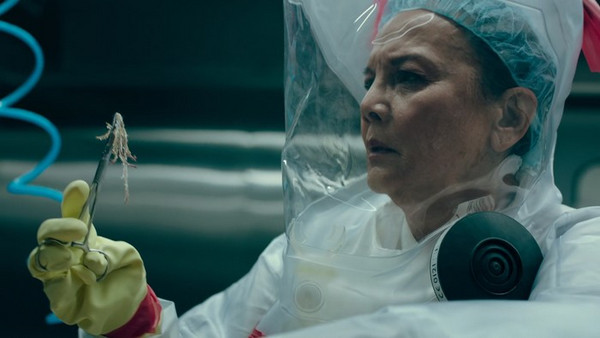
The Long Read: The RSV Vax Story edition
September 26, 2023 ✒ Andrew Kantor
A group of smaller, transparent PBMs has come together to create “Transparency-Rx,” an organization to lobby for changes to how all PBMs operate. These include a ban on spread pricing as well as reforms to the rebate model that include the impact of group purchasing organizations. Other core tenets backed by the coalition include instituting a 100% pass-through model for discounts, “delinking” that requires PBMs to be paid by a disclosed flat fee and technology that backs data sharing with patients, insurers, pharmacists and other stakeholders. We wish them luck. UGA researchers found that brown rats in the Atlanta area are now carrying rat lungworm, “a parasite that can trigger a dangerous brain encephalitis in both people and pets, and which now threatens a wide area of the U.S. Southeast.” It’s rare but not unheard of for humans to become infected, so if you see a brown rat around Atlanta somewhere, don’t try to take it home as a pet. Rite Aid is proposing closing 400 to 500 of its 2,100 drugstores as part of a bankruptcy plan. The Philadelphia-based company faces more than $3.3 billion in debt and over a thousand federal lawsuits alleging it oversupplied opioids. A number of its stores are stuck in long-term leases that the company can’t get out of, making bankruptcy an effective tool to shed them. VistaPharm is recalling a lot (i.e., one lot) of its sucralfate oral suspension because it’s contaminated with Bacillus cereus, the food-poisoning bacteria. It’s NDC 66689-305-16 and the affected lot is number 810300 with an expiration Date of October 31, 2023. Somewhere out there are people who, when asked “Ginger or Mary Ann?”, for unfathomable reasons pick Ginger. They might have the last laugh, though, as it seems ginger supplements could help alleviate inflammation. As Buzz readers know, 95% of what ails people is either caused by inflammation or gut bacteria, so controlling the former is always important. The problem is when white blood cells — neutrophils — get overactive, leading to a condition called NETosis* that itself leads to inflammation. “The study found ginger consumption by healthy individuals makes their neutrophils more resistant to NETosis.” This is important because NETs are microscopic spider web-like structures that propel inflammation and clotting, which contribute to many autoimmune diseases, including lupus, antiphospholipid syndrome, and rheumatoid arthritis. * neutrophil extracellular trap (NET) formation Thirteen organizations, including Emory University, will become part of a new $262.5 million CDC network (of “health departments, tribal organizations, academic institutions, and private-sector partners”) designed to “detect and respond to public health emergencies” including the next major disease outbreak. The money will be given over five years, and this Outbreak Analytics and Disease Modeling Network will start with … ….an analysis of the public health landscape and identify “gaps, needs, and opportunities for outbreak analytics and disease modeling.” The Consumer Financial Protection Bureau has released its proposal to remove medical debt from credit reporting. Medical debt is the most common debt in collection. The CFPB found that 58% of all third-party debt collection on consumer credit reports was for medical bills. Sick rats in Atlanta, when it’s okay to pick ginger, Rite Aid plans closures, and more
The mice are roaring

The rats are dangerous
Rite Aid proposes bankruptcy plan
Ulcer treatment recall
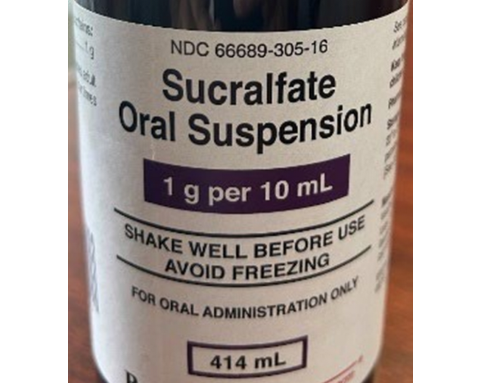
Ginger might tame inflammation
CDC taps Emory as part of prep for next pandemic
ICYMI: Medical bills to come off credit reports
September 23, 2023 ✒ Andrew Kantor
Pharma companies are turning to artificial intelligence to speed up the drug-testing process. That’s great … mostly. They’re using AI to help discover new molecules, of course. And — with the FDA’s OK — to use fewer participants in phase 3 trials. So-called “external control arms” substitute AI-mined patient data for giving some participants a placebo. Oh, and they’re using AI to find study participants. Companies such as Amgen, Bayer, and Novartis are training AI to scan billions of public health records, prescription data, medical insurance claims and their internal data to find trial patients. Wait, what? Yep. What, you thought your medical records and prescription data were private? Oh you sweet, naïve child, bless your heart. * * * A new study out of the University of Alberta*, finds that, while long Covid affects 10% to 30% of people who get the disease (depending on which data you look at), it seems to spare the children. Of more than 1,000 Canadian kids, average age about 10½, “just one met the definition for long COVID used by the World Health Organization.” * Did you know there are no rats in Alberta? Crazy, right? Paxlovid, which once had a 88% chance of preventing serious Covid-19, now seems to be only about 37% effective at preventing hospitalization in high-risk patients. The good news is that it’s still 84% effective in preventing Covid death. Why the big change? The original clinical trials “were conducted among unvaccinated patients who had limited natural immunity,” so the percentages swung in Paxlovid’s favor. Welcome to AIP Bryan Green, Suzanne Brethamer, and Premier Drugstore of Douglasville! “Bryan and his staff have built a great community pharmacy,” said GPhA VP of AIP Jonathan Marquess. “It was a pleasure hearing about their passion for weight loss and patient care.” And welcome David Tucker, PharmD, of Wyatt’s Pharmacy in Lithia Springs! Said Marquess, “David and his staff have a passion for patient care, and it shows!” A new WalletHub study ranks Georgia #48 out of the 50 states and DC for overall vaccination rates — that’s everything from basic childhood shots to flu, tetanus, shingles, Covid … you get the idea. Only Arizona, Alaska, and Mississippi did worse. Some states may be in a hurry to take health insurance away from a lot of people, but HHS isn’t having it. In part because the vast majority (73%) of post-pandemic Medicaid removals are for procedural reasons, not eligibility reasons, HHS is overruling the states (30 of them!) and reinstating coverage for about half a million people, including something like 210,000 kids. The agency is “Still Assessing” how many Georgians are affected. [S]ome states were conducting auto-renewals at the family level instead of the individual level, even though different family members will have different eligibility statuses. Children, for example, often have higher eligibility thresholds than adults do and could still be eligible for Medicaid or CHIP even if their parents aren’t. Another excellent piece on how and why PBMs (and drug companies) are steering insurer dollars to brand-name drugs and not biosimilars, costing Americans billions: “Save billions or stick with Humira? Drug brokers steer Americans to the costly choice”. Twist: It’s not just the PBMs. One of AbbVie’s strategies was to warn health plans that if they recommended biosimilars over Humira they would lose rebates on purchases of Skyrizi and Rinvoq, two drugs with no generic imitators that are each listed at about $120,000 a year, according to PBM officials. In other words, dropping one AbbVie drug would lead to higher costs for others.Paxlovid ain’t so great anymore, AI beats privacy, kids safe from long Covid, and more
AI helps find study participants
The kids are all right
The mighty falls a few steps
Welcome new AIP members!

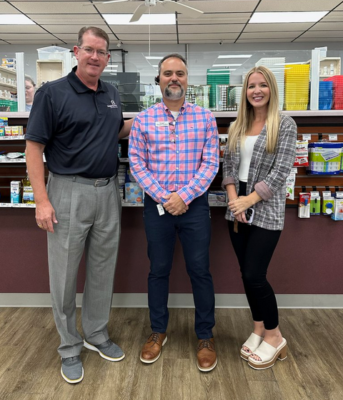 q
qCan we do better? I think we can do better
Medicaid reversals reversed
The Long Read: Why Biosimilars Struggle edition
September 22, 2023 ✒ Andrew Kantor
Region 11 — you folks in the Augusta area — we left you off the list of region meetings yesterday. Mea culpa. You are having your fall Region Meeting on Thursday, September 28 at 6:30 pm at the Bonefish Grill in Augusta. As a bonus, we asked our favorite AI image generator to imagine what it might look like*. This is (seriously) what it came up with: We can’t promise it will be that, um, interesting, but it’s sure to be a great time. Side note: Apparently, as far as AI is concerned, any horizontal image of a dinner party is going to be inspired by DaVinci; here are some other examples. In the same post where we left off region 11, we forgot to remove region 2. Unfortunately, region 2’s meeting has been cancelled — sorry for any confusion. * “Pharmacists from Augusta Georgia having a fun dinner party” Starting this coming Monday, people will be able to once again order free Covid-19 tests from covidtests.gov. The downside: They won’t be mailed till December. But, says the feds, some existing “expired” tests may not have actually expired. A big GPhA Buzz (Oh, yeah, and she was already named UGA Faculty Advisor of the Year — twice — GPhA Faculty Member of the Year, and she serves on the board of the Georgia Pharmacy Foundation.) If you have patients treating atopic dermatitis, here’s a warning for them: They’ve got a much greater risk of an inflammatory bowel disease — either ulcerative colitis or Crohn’s disease. Penn researchers found that adults with atopic dermatitis have a 34% increased risk of developing new-onset IBD, and children’s risk goes up a 44%. In fact, with kids there’s a difference between the risks for ulcerative colitis and Crohn’s disease — there’s a much greater risk of developing the latter. They aren’t quite sure why this is the case, but they speculate it might have to do with “chronic inflammation, and the dysfunction in the skin and gut barrier respectively.” “Those need to be explored further to uncover both what’s happening at a microscopic level and what proteins or structures could be targeted to treat one or both conditions.” Side note: Kids dealing with severe atopic dermatitis are best treated with methotrexate, according to a new British study. The study found that ciclosporin works faster and reduces disease severity more at 12 weeks but was more expensive, whereas methotrexate was significantly cheaper and led to better objective disease control after 12 weeks and off therapy. …found that creatine supplements — the stuff that body builders take — might also help alleviate the symptoms of long Covid. But the Serbian researchers who did the study only used 12 patients, so, of course the mantra applies: More research is needed. If you’ve tossed and turned at night wondering which antibiotic for pediatric acute sinusitis is better — amoxicillin or amoxicillin-clavulanate — then you can get back to those flying dreams and hanging on the beach with Paul Rudd. The folks at Brigham and Women’s Hospital did a study involving 200,000 kids and concluded there’s no real difference between the two. The why is actually interesting: The clavulanate helped target beta-lactamase–producing bacteria. These days, between vaccines and antibiotic resistance, the biology of what causes the disease has shifted so the clavulanate doesn’t make as much of a difference. Medical workers are shocked and a bit peeved at a draft proposal from a CDC advisory committee that said in most cases cheap surgical masks were just as good as N95 masks, despite what looks like serious flaws in the data. It was going to recommend that hospitals not require N95 masks except when dealing with uncommon or pandemic-level pathogens (i.e., not endemic, as Covid is now). Virologists pointed out, though, that you don’t choose protection based on how common something is, but by how it’s transmitted. And Covid is transmitted by air. In the face of widespread pushback, the committee has postponed making its recommendation, perhaps to get input from people who know more about these issues. As one hygienist put it: “If they end up codifying these standards of care, it will have a disastrous impact on patient safety and impact our ability to respond to future health crises.” Mask guidelines postponed, dermatitis-colitis connection, free tests are coming back, and more
We totally screwed up

We’re sorry, Moultrie-area folks
Free Covid tests are coming back
Welch does it yet again
high five fist bump for GPhA member Lindsey Welch, named a UGA Women’s Leadership Fellow — “a select group of current faculty and administrators with an opportunity to develop leadership skills while gaining a deeper understanding of the challenges and opportunities confronting higher education.”
One inflammation raises another’s risk
Today’s teeny-tiny study….
Sinusitis and kids — two good options

Proposed mask guidelines anger health workers
September 21, 2023 ✒ Andrew Kantor
Sure, new weight loss meds are great for patients, and they can potentially head off a variety of health issues. But has anyone thought of what Mounjaro, Ozempic, Wegovy, and kin will do to the snack food market? Yes, someone has — Reuters commentators Aimee Donnellan and Robert Cyran explain how these new drugs spell trouble for some old friends. During trials, patients showed reduced appetite and even an aversion towards food generally. This has the potential to affect giant groups such as Switzerland’s Nestlé, Cadbury and Oreo maker Mondelez International, and Kraft Heinz. […] Fast food groups like McDonald’s, Burger King, and KFC owner Yum Brands could also face shrinking or shifting demand. Time is running out. If you live in one of the following GPhA regions, you’re almost out of time to sign up for your fall Region Meeting! For just $10 you can to hang out with other local pharmacy pros for a great dinner, an update on Georgia pharmacy, and a fun and low-pressure networking opportunity. Sign up for your region meeting dinner now! Details and sign-up links for all the meetings are at GPhA.org/regionmeetings. CDC scientists are predicting one of two ways this year’s respiratory virus season will shake out. Scenario A: Scenario B: So the big question seems to be how bad flu and RSV will be this year. And with the flu shot showing pretty decent effectiveness in Australia, there’s reason to be optimistic. Aussie scientists were looking for a way to get acne medication through the skin, which is a tougher nut to crack that you might think. Their solution was to take narasin, a decades-old livestock antimicrobial, and do some nano-science to it, making it small enough to slip inside the acne and wreak havoc on the bacteria there, clearing the acne and saving prom night. (See, the nano-science gave the drug the ability to be absorbed 100 times more than if it was just applied with water. Although why you would apply a topical drug with water wasn’t explained.) The point is, narasin is an existing drug, so this could be turned into a real therapeutic sooner rather than later. Back in June, Novo Nordisk sued pharmacy compounders who offered compounded versions of semaglutide. Now Lilly is following suit (ha!), accusing wellness centers and compounding pharmacies of ‘illegally’ selling products with tirzepatide, the active ingredient in the company’s Mounjaro. Its claim: Those places are selling “unregulated” versions of tirzepatide. The problem: Saying that compounded tirzepatide products “have not been reviewed by the U.S. FDA” (as Lilly did) is akin to saying that Lilly’s facilities “have not been certified by OSHA.” That’s not what OSHA does, but it sure sounds scary. The FDA doesn’t regulate compounded formulations, just the ingredients. And certain compounding pharmacies can, by law, compounded versions of drugs in shortage — like tirzepatide. We’ll see how this plays out soon enough. No, ruled a federal judge, the state of Missouri’s board of pharmacy cannot punish a pharmacist for telling a patient or physician, “You know, ivermectin doesn’t do a thing for Covid.” Apparently the state passed a One pharmacist challenged the legislation, saying it violated her First Amendment rights because it prevented her from saying those drugs didn’t work but not from saying they did. (There’s also the issue of her professional duty as a pharmacist.) The pharmacist had stated that she believed that “counseling patients and doctors to the best of her professional judgment is required as a matter of professional ethics, even when that means contacting the patient or doctor to dispute the efficacy of a given medication.” The judge agreed. Apparently you can’t pass a law (and threaten someone’s license) for saying “orange is better than green” but not for saying “green is better than orange”.* * Orange is better than green. The next normal part of aging that botulism toxin is going to take on? Platysma bands, aka the two vertical lines on your neck that apparently is now a Bad Thing to have. Abbie just announced that its Botox has passed a phase 3 trial for treating platysma bands, so expect it to be officially used for that soon … with some freakish TikTok alternative being pushed soon afterwards. Pharmacists keep free speech, fast food’s imminent collapse, nanotech acne meds, and more
Weight loss: the biggest losers

Region Meetings are next week!

Artist’s conception
Respiratory virus coin flip
Tiny med, shrinking acne
Now Lilly is suing over Mounjaro
Elsewhere:
Show Tell Me editiongag order law prohibiting pharmacists from doing just that — but it only affected ivermectin and hydroxychloroquine, not any other drug.Botox’s next trick

September 20, 2023 ✒ Andrew Kantor
One way the FDA was dealing with the cisplatin shortage was by allowing imports from China’s Qilu Pharmaceutical, even though the facility wasn’t FDA approved. That helped for a bit, but now the agency reports that the Qilu well has run dry: “All imported product has been distributed.” The bit of good news is that other companies have some supply. Cisplatin from both Gland Pharma and HQ Specialty Pharma are “Available on allocation,” but the rest of the usual manufacturers have it on backorder at best. The other news — neither good nor bad — is that Congress is hard at work on the issue: “Health subcommittee members at odds over drafted drug shortage legislation.” The rollout of the season’s Covid boosters in Georgia has been a bit bumpy, which to be fair isn’t surprising considering it’s just started. Vaccine makers have tripled the price of the shot, and some commercial insurers haven’t added it to their systems, so patients have to wait until they’re sure of coverage or pay out of pocket and deal with being reimbursed. Some pharmacies have the vaccines, some don’t, and some are already running short — as pharmacist and GPhA member Jonathan Hamrick told Atlanta’s channel 11, demand for the boosters is already huge. People without insurance can use the federal government’s Bridge Access Program if they’re near a CVS, Walgreens, or participating independent pharmacy. The DPH is supposed to be getting vaccines for distribution by county health departments, but that’s still in progress. Follow all that? Infections with Clostridioides difficile are a big problem for hospitals, and it even stringent hygiene procedures don’t stop it. So University of Michigan microbiologists looked closer when they found the surprising reason that’s the case. They sampled the C. diff infections of 100 patients at Rush University Medical Center over 9 months. The surprise: Each patient had a different strain. They didn’t transmit the C. diff to one another. They didn’t get it at the hospital. They brought it with them. [ insert dramatic music here ] “Something happened to these patients that we still don’t understand to trigger the transition from C. diff hanging out in the gut to the organism causing diarrhea and the other complications resulting from infection.” Say it with me: More research is needed. “Young adults’ simultaneous use of alcohol and marijuana linked to more negative consequences” Now, after it killed more than 1.1 million Americans — and the remaining people have either survived the disease, been vaccinated, or both — Covid-19 has reached a new phase that physicians are learning to recognize. Gone are dry coughs and loss of the sense of smell; congestion and sneezing are now the more common signs. There’s good news and bad. The good news is that for most people the disease is minor*. The bad news is that the symptoms of the latest variants are at first similar to a cold, making identification tougher and increasing the risk if it turns into a severe case when it’s too late for Paxlovid to help. * Except for the risk of long Covid, which affects up to 30% of people who get mild cases A Canadian team found that people suffering from long Covid might be helped by getting a(nother) Covid vaccine. The study was fairly small — 86 patients — but they found that a vast majority — 86% — reported fewer symptoms after the shot. (Interestingly, 8.3% reported more symptoms. Go figure.) Based on blood tests, they think it’s because of the reduction in cytokines and chemokines, “a sign that inflammatory proteins were mitigated by vaccination.” A phase 1 (‘does it work?’) test of a second universal flu vaccine is about to begin. It’s called FluMos-v2, and it was developed by the good folks at the National Institute of Allergy and Infectious Diseases Vaccine Research Center. NIAID’s FluMos-v1 is still in testing. While the FluMos-v1 vaccine candidate displays HA [hemagglutinin] from four strains of influenza virus, FluMos-v2 displays HA from six: four influenza A viruses and two influenza B viruses. The researchers anticipate that this will further broaden vaccine recipients’ immunity, providing protection against a wider variety of influenza viruses. Here comes the science: “FluMos-v2 is designed to induce antibodies against many different influenza virus strains by displaying part of the influenza virus hemagglutinin (HA) protein in repeating patterns on self-assembling nanoparticle scaffolds.” “This Simple Activity Lowers Stress Without Exercise or Meditation” It’s coloring.
Hospital infection shocker, boosters stumble into Georgia, Captain Obvious doesn’t mix, and more
Bad news for cisplatin patients
Georgia boosters are hard to come by
C. diff: The call is coming from inside the house!

Captain Obvious sticks to the occasional half-caff
Covid quickies
The new normal
Easing long Covid
Universal flu vax: the latest
Saving you a click

September 19, 2023 ✒ Andrew Kantor
A lot of kids take ADHD meds — 5% by current estimates. Apparently they’re not always careful about taking them, as ADHD medication errors have jumped 300% (!) since 2000. These aren’t doctor or pharmacist errors — these are patient/caregiver errors. Based on data from poison control centers, researchers from Ohio’s Nationwide Children’s Hospital found the most common scenarios: Of those cases, more than 4% “were associated with a serious medical outcome.” Yikes. A hearty GPhA Buzz congratulations to the team of UC Irvine researchers who won the 2023 Ig Nobel Prize in medicine for their paper, “The Quantification and Measurement of Nasal Hairs in a Cadaveric Population,” (paywall link here) i.e., “using cadavers to explore whether there is an equal number of hairs in each of a person’s two nostrils.” Preeclampsia is common enough that you’d think we’d know what causes it — but nope. That might have changed, though, thanks to researchers at Western and Brown universities. The Canadian/US team has found a “troublemaker” protein called cis P-tau that it thinks is “a central circulating driver of preeclampsia.” One of the team had already been testing an antibody for cis P-tau (which also happens to be associated with Alzheimer’s), so they figured to try it on mice with preeclampsia. Good news: “[W]e found the cis P-tau antibody efficiently depleted the toxic protein in the blood and placenta, and corrected all features associated with preeclampsia in mice.” In other words, they found the cause and already have a potential treatment in the works. Here’s a disturbing finding: Not only are a lot of omega-3 supplements being sold past their expiration dates, but — according to George Washington University researchers — something like 45% of them have gone rancid. The researchers conducted six years of tests on 72 of the most popular brands of omega-3 supplements, using the recommended rancidity limits that are voluntarily set by GOED, a global trade group that represents omega-3 manufacturers. […] The researchers found a total of 45% of flavored and unflavored supplements tested positive for rancidity…. The good (or bad) news is that the flavoring used in some of the pills might cover the unpleasant odor. Here’s an interesting idea for treating autoimmune diseases: Rather than try to keep the immune system in check, tag healthy cells as “Do not kill.” University of Chicago bioengineers call it an “inverse vaccine.” The liver already does the ‘tag-as-friendly’ trick with aging cells. After all, why have the body attack something that’s gonna die anyway? So the UC folks took this idea and ran with it. They created a molecule that looks a lot like a bit of an aged cell — one the liver wouldn’t bother sending the troops for. By attaching this molecule to myelin (which the immune system attacks in diseases like multiple sclerosis) they were able to keep the nerve cells safe. The immune system, they found, stopped attacking myelin, allowing nerves to function correctly again and reversing symptoms of disease in animals. “The pandemic a tough time also for pharmacies” Customers showing up even when they were sick, not agreeing with the restrictions, and many new tasks for staff…. Medicaid expansion was once a hugely divisive topic. These days, though, with 40 states — red and blue — having expanded the program with bipartisan support, it’s just not that big a deal any more. Nose-hair counting, rotten omega-3s, an “inverse” MS vaccine, and more
ADHD med errors skyrocket
Prize-winning nose hair research
The cause of (and cure for?) preeclampsia
Check the dates on your omega-3s

Flipping the vax for autoimmune disease

Captain Obvious feels your pain
The Long Read: Putting the “Meh” in Medicaid Expansion edition
September 16, 2023 ✒ Andrew Kantor
The Federal Trade Commission is Not Happy at All with the way it thinks pharmaceutical companies are gaming the patent system by (the agency says) “Improperly listing patents” to prevent competition from generics. It’s issued a formal policy statement putting those companies on notice: “[T]he FTC intends to scrutinize improper Orange Book* listings to determine whether these constitute unfair methods of competition.” From the statement (PDF): Improper Orange Book listings may have played a role in distorting pharmaceutical markets for decades. The Supreme Court has observed that since the late 1990s there has been evidence that some brand drug companies were exploiting the Orange Book listing process “to prevent or delay the marketing of generic drugs.” * “the FDA’s official source for listing prescription (and nonprescription) drug products” Well well well. It seems that for all the damage the SARS-CoV-2 virus can do, all this time it’s been dependent on a human process to replicate. We won’t go into the science in too much detail, but the gist is that after the virus’s DNA creates a protein, that protein needs to be tweaked (“post-translation modification”). And that SARS virus uses a human protein called “N” to make its protein behave badly. This means, the UC Riverside researchers who discovered it say, that there could be an easy-to-exploit weakness not only of SARS-CoV-2, but of influenza A and B, both of which use the same human process to spread. Possibly out of concern that too many young people can’t read cursive, Johnson & Johnson is giving up its iconic script logo in favor of one based on a plainer font that they likely paid millions to develop. The new font, says the company, is “A modern take on our heritage script and updated for this next chapter, each letter is drawn in one pen stroke, creating a contrast that delivers both a sense of unexpectedness and humanity.” (Seriously.) J&J has also updated its ampersand to a new design that “captures our caring, human nature. It represents the openness of our brand and the connections we make to bring our purpose to life.” Ooooookay. A year ago, only about 17% of Americans said they would be interested in getting a Covid booster in the fall of 2023. Today that number is about 50%. The nationwide online poll […] showed that almost 30% of respondents were very interested in getting the vaccine and another 24% were somewhat interested. Almost 17% were not very interested and 30% were not interested at all. The most-cited reason for wanting the vaccine: avoiding severe illness. The most-cited reason for not wanting it? Fear that the vaccine somehow isn’t safe … or believing that Covid doesn’t really make people sick. It’s spreading in India’s Kerala state, has a 40–75% mortality rate, and spreads from human to human. There’s no cure and no vaccine. On the other hand, the “outbreak” has killed just two people and sickened five, it isn’t airborne, and it’s not India’s first rodeo with Nipah — it’s actually the fifth. So no, probably not something to worry about unless a more-deadly strain emerges. As you were. As the FDA acknowledges that phenylephrine doesn’t work, the question is out there: How did it past the “effective” part of the “safe and effective” test? The Atlantic has the answer. Fun fact: Did you know that the new method of making meth no longer uses pseudoephedrine? It doesn’t need to be behind the counter…. J&J gets human, American want their booster, FTC fires warning shot, and more
FTC to pharma: No more games
Covid’s Achilles heel?
Nobody expects a new J&J logo

Covid-booster hesitancy falls
Should we start worrying about the Nipah virus?
The Long Read: Phenylephrine History edition





